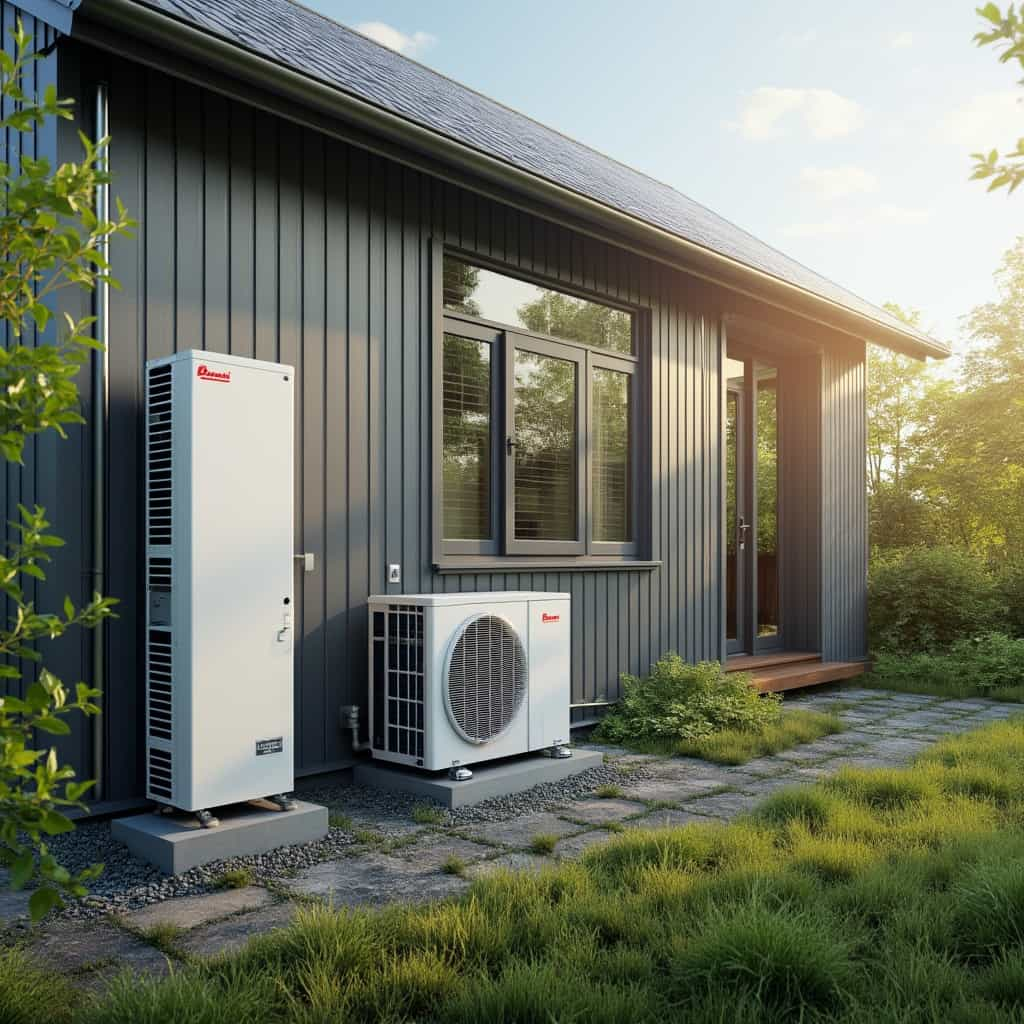As the world progressively shifts toward energy efficiency and sustainable heating solutions, heat pumps for standalone homes are witnessing a surge in popularity. These devices are designed to transfer heat from one place to another, making them an efficient alternative to traditional heating methods. With the rise in demand, manufacturers are rolling out a plethora of new models, each boasting advanced technologies and features aimed at enhancing efficiency and comfort. The latest models are versatile, allowing for usage in various climatic conditions, and are often equipped with smart technology enabling remote management through mobile applications.
A significant development in the realm of heat pumps is the integration of Artificial Intelligence (AI) and Internet of Things (IoT). These technologies enable heat pumps to learn the homeowner’s heating patterns, optimizing energy use and reducing wastage. For instance, the recently released Mitsubishi Electric Hyper-Heating INVERTER® (H2i®) series comes equipped with AI-driven systems allowing it to adjust heating output according to real-time weather data.
The geographical market trends indicate a varied acceptance rate of heat pumps across different regions. Northern European countries such as Sweden and Norway have been at the forefront of adopting heat pumps due to their cold climates and governmental incentives promoting eco-friendly technologies. In contrast, regions with milder climates, such as Southern Europe and certain areas of the United States, are gradually catching up, primarily driven by rising electricity prices and the increasing awareness of renewable technologies.
Given the diverse climatic demands, manufacturers have developed various types of heat pumps to suit different needs. Air-source heat pumps, which extract heat from the outside air, are widely used across Europe and America due to their adaptability and cost-effectiveness. On the other hand, ground-source or geothermal heat pumps, which draw heat from the ground, are ideal for regions with consistent ground temperatures, offering impressive efficiency despite higher installation costs.
Prominent players in the industry such as Daikin, Carrier, and Trane are pioneering in producing energy-efficient and low-carbon-emission heat pumps. Daikin’s Altherma series, for instance, is highly regarded for its energy efficiency and ease of installation. The model utilizes a unique refrigerant that minimizes environmental impact while maximizing heat output. Carrier, on the other hand, offers the Infinity Series, known for its dual fuel system allowing it to automatically switch between electric and gas heating, optimizing operation based on weather conditions.
One cannot overlook the financial considerations of installing heat pumps. Although the upfront costs may be higher than conventional heating systems, the long-term savings on energy bills and the environmental benefits make them a worthwhile investment. Numerous financial incentives are available from governments worldwide, intended to offset installation costs and encourage adoption. In the United States, the Federal Tax Credits for Consumer Energy Efficiency offers up to 26% of the cost of purchase and installation of qualifying heat pumps until the end of 2023.
The global market for heat pumps is projected to grow significantly over the next decade, with a compound annual growth rate (CAGR) of nearly 8% as per a recent report by Market Research Future. This surge is driven by increasing energy efficiency regulations, rising energy costs, and advancements in heat pump technology. Countries like China, which traditionally relied heavily on coal and gas for heating, are now investing in renewable technology, including heat pumps, as part of their commitment to reducing carbon emissions.
Technological innovations continue to enhance the attractiveness of heat pumps. For instance, the introduction of variable refrigerant flow (VRF) technology allows users to control the temperature in different rooms individually, saving energy and increasing comfort. The LG Multi V IV heat pump deploys this technology, offering flexibility and heightened efficiency. VRF systems are particularly advantageous for larger homes with varying heating needs across different zones.
Beyond residential use, heat pumps are finding their way into commercial and industrial applications. As businesses aim to reduce operational costs and carbon footprints, heat pumps offer an effective solution, especially when integrated with other green initiatives like solar panels and wind turbines. Reports suggest that the commercial sector will account for a notable share of the heat pump market growth, further solidifying its role in energy-saving strategies.
To summarize, the heat pump industry is rapidly evolving with innovative technologies, competitive pricing, and favorable governmental incentives. Homeowners looking to invest in heat pumps have a wide range of options to choose from, each tailored to specific climatic and installation needs. The future of heat pumps in standalone homes looks promising, with ongoing advancements promising even greater efficiency and affordability. As the world gravitates towards sustainable living, heat pumps represent a key technology in reducing energy consumption and minimizing environmental impact.
You may also like
Pellet Stoves: Technologies and Best Offers
Pellet stoves are gaining popularity as an efficient and sustainable heating option. This article explores the latest trends, technologies, and best buys in the pellet stove market, while also considering geographical purchasing trends and consumer preferences.
Electric Heaters: New technologies and Best Deals
This comprehensive article delves into the world of electric heaters, highlighting the latest innovations, models, and market trends. With a focus on new technologies, best prices, and purchase guarantees, it provides a complete overview of what consumers should consider when buying an electric heater.
The Changing Face of Gas Boilers
Gas boilers have long been a staple in homes around the world, providing reliable heating solutions. However, as technology advances and market dynamics shift, the landscape for gas boilers is evolving. This article delves into the recent innovations in gas boiler technology, examines market trends, explores the best models and offers available today, and provides a guide to making an informed purchase.
Electric Boilers: Models and Market Trends Shaping the Future
Electric boilers are gaining traction globally as an efficient and sustainable heating solution. This article delves into the latest innovations, models, and market trends, offering insights into the best value propositions and regional purchasing patterns.
